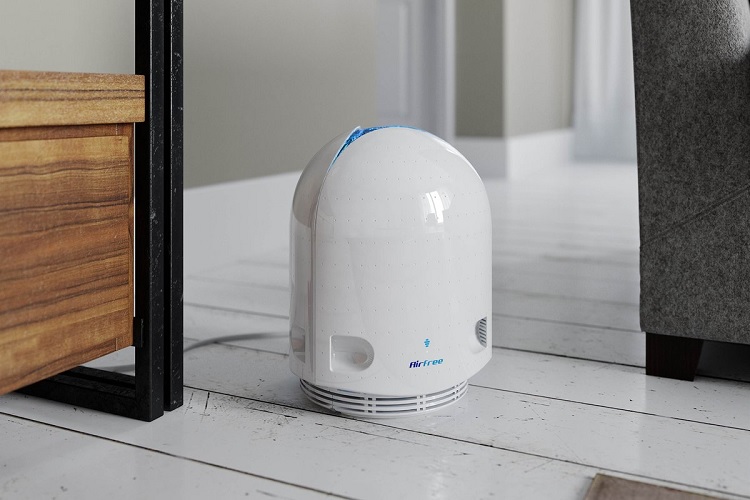The Essence of Emotional Awareness in Nurturing Relationships
Emotional awareness, a vital aspect of our psychological framework, plays a crucial role in shaping and strengthening our interpersonal relationships. It refers to our ability to recognize, understand, and respond to our own emotions and those of others. This skill is fundamental in developing empathy, communication, and emotional intimacy in relationships.
Recognizing Emotional Patterns
Gaining insight into our emotional patterns is the first step towards emotional awareness. This involves understanding the triggers that evoke certain emotions and recognizing the physical and mental responses that accompany these emotions. By acknowledging these patterns, individuals can better manage their emotional responses, leading to healthier interactions in relationships.
The Power of Empathy
Empathy, a byproduct of emotional awareness, allows us to perceive and understand the emotions of our partners. It fosters a supportive environment where both individuals feel heard and understood. This deep level of understanding is pivotal in building trust and a strong emotional connection.
Enhancing Emotional Intelligence in Relationships
Building emotional intelligence is a journey that involves continuous learning and adaptation. Here are key strategies to enhance emotional awareness in relationships:
- Open Communication: Cultivate an environment where both partners feel comfortable expressing their emotions openly and without judgment.
- Active Listening: Practice active listening to understand your partner’s perspective, rather than just waiting to respond.
- Self-Reflection: Regular self-reflection helps in understanding your emotional responses and how they impact your relationships.
- Conflict Resolution: Develop healthy ways to resolve conflicts, focusing on understanding and addressing the emotional needs of both partners.
- Joint Activities: Engage in activities that foster emotional connection, such as shared hobbies, mindfulness practices, or therapy sessions.
Emotional Awareness in Everyday Life
Implementing emotional awareness in daily life can transform the way we interact with our partners. Simple practices like checking in with each other’s feelings, showing appreciation, and giving space when needed, can significantly improve the quality of a relationship.
Building Resilience Through Emotional Awareness
Emotional awareness is not just a tool for enhancing relationships; it’s also a foundation for building resilience. When individuals are emotionally aware, they are better equipped to handle stress and adversity, both individually and as a couple. This resilience stems from the ability to recognize and regulate emotions, a skill that is especially valuable in navigating the challenges that life invariably presents. Couples who practice emotional awareness tend to develop a stronger bond, as they learn to support each other through difficult times, transforming obstacles into opportunities for growth and deepening their connection.
Fostering a Culture of Mutual Respect and Understanding
In relationships, emotional awareness cultivates a culture of mutual respect and understanding. When both partners are attuned to each other’s emotional needs and responses, it creates a harmonious balance where both feel valued and respected. This mutual respect is fundamental in maintaining a healthy relationship, as it ensures that both individuals feel secure and appreciated. It also paves the way for open and honest communication, where both partners can express themselves without fear of judgment or misunderstanding, further solidifying the trust and intimacy in the relationship.
The Role of Emotional Awareness in Long-term Relationship Satisfaction
Over time, the role of emotional awareness in ensuring long-term relationship satisfaction becomes increasingly evident. Relationships that are grounded in emotional awareness tend to be more resilient to the ebbs and flows of life. Partners who are emotionally attuned can better navigate the changes and challenges that come with time, whether they’re related to career, family, health, or personal growth. By maintaining a strong emotional connection, these couples are able to support each other’s individual journeys while growing together, ensuring a lasting and satisfying relationship.
Key Takeaways
- Emotional awareness is crucial for recognizing and understanding both personal and partner’s emotions, enhancing empathy and communication in relationships.
- Identifying emotional triggers and patterns aids in managing responses and fostering healthier interactions with partners.
- Empathy, fostered through emotional awareness, is key to building trust and a deep emotional connection in relationships.
- Open communication and active listening are essential practices for developing and maintaining emotional awareness in a partnership.
- Implementing emotional awareness in everyday life, through simple practices like regular check-ins, can significantly improve relationship quality.
- Emotional awareness contributes to resilience in relationships, helping couples navigate stress and adversity together.
- Long-term relationship satisfaction is bolstered by emotional awareness, as it helps couples adapt to life’s changes and challenges while maintaining a strong connection.
The Path to Deeper Connections
Embracing emotional awareness in relationships is not just about understanding emotions; it’s about leveraging that understanding to create deeper, more meaningful connections. It’s a journey that requires patience, effort, and a willingness to grow both individually and as a couple. By enhancing emotional awareness, we pave the way for relationships that are not only enduring but also enriching and fulfilling.
What is emotional awareness and why is it important in relationships?
Emotional awareness refers to the ability to recognize, understand, and respond to one’s own emotions and those of others. In relationships, it’s vital for fostering empathy, effective communication, and deepening emotional connections. By being emotionally aware, partners can better understand each other’s needs, manage conflicts more healthily, and build a strong foundation of trust and intimacy.
How can I improve my emotional awareness?
Improving emotional awareness involves self-reflection, actively acknowledging and understanding your emotional responses, and practicing empathy. Engaging in mindful activities, such as meditation or journaling, can help in recognizing and processing your emotions. Additionally, open communication and active listening with your partner can enhance your ability to understand and respond to their emotions effectively.
Can emotional awareness reduce conflicts in relationships?
Yes, emotional awareness can significantly reduce conflicts in relationships. By understanding your own emotional triggers and those of your partner, you can approach conflicts with empathy and a clearer perspective. This awareness helps in addressing the underlying emotions behind conflicts, leading to more constructive and less confrontational resolutions.
How does emotional awareness affect communication in a relationship?
Emotional awareness directly impacts communication by fostering an environment of openness and understanding. When partners are attuned to each other’s emotional states, they communicate more effectively, with greater empathy and less judgment. This leads to more meaningful conversations and a stronger emotional bond.
Is emotional awareness linked to relationship satisfaction?
Emotional awareness is closely linked to relationship satisfaction. It enables partners to connect on a deeper emotional level, navigate challenges more effectively, and maintain a strong bond over time. Relationships grounded in emotional awareness are often more resilient, empathetic, and fulfilling, leading to greater overall satisfaction.




